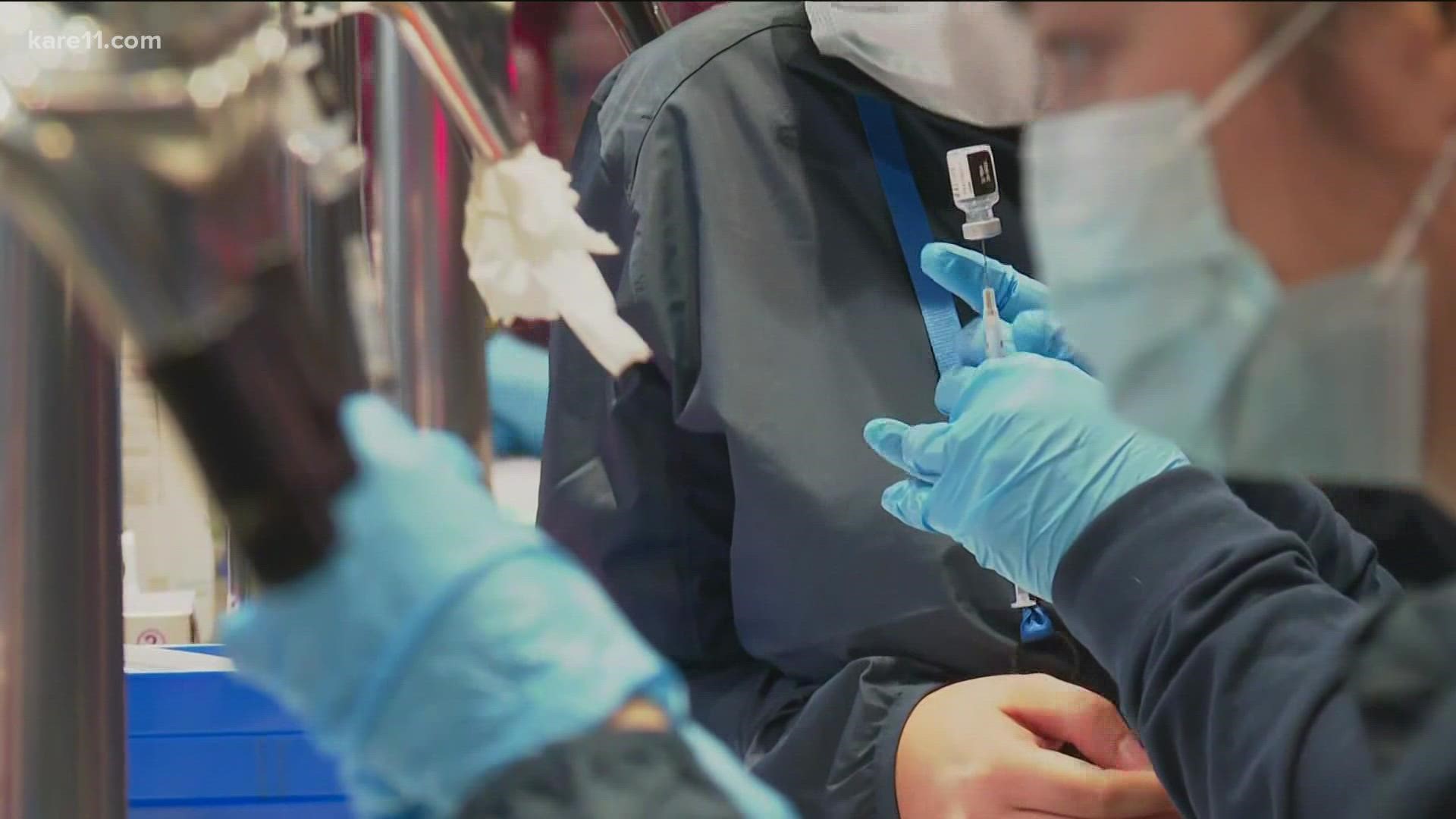MINNEAPOLIS — An appeals court has pressed pause on President Biden's vaccine mandate for large businesses that could impact 84 million Americans, but labor experts say employers shouldn't be planning for the court's stay, to stay.
"They need to push ahead and continue preparing for implementing these new OSHA regulations," said Grant Collins, a labor and employment attorney for Felhaber Larson. "Employers need to start building out the infrastructure to track employee vaccination, and to ensure that folks who are unvaccinated know how and when to get tested for COVID-19. All of that infrastructure and those policies need to be in place by December 6, and so there is a very tight timeline."
According to the Minnesota Department of Employment and Economic Development, 4,796 companies in the state fit the size requirement of the mandate, and those companies employ 1.4M people. But some of those employers have already acted on their own.
Kent Erdahl: "If your employer has already issued its own mandate, does this have any bearing at all?"
Grant Collins: "No, employers have, throughout the country, implemented their own vaccine mandates and challenges to those vaccine mandates have been struck down pretty consistently. This is different."
Collins says the current legal challenge argues that the mandate is different in two major ways.
"There's the constitutional challenge of, can OSHA really do this? Does it have the authority to do this? And secondly, even if they have the authority to do this, you can't have it both ways," he said. "You can't only include employers with 100 or more employees and say that it's critical, it's grave; it's for the protection of everyone — and then exclude every employer with 99 or fewer employees."
University of Minnesota law professor David Schultz says there are now multiple legal challenges across the country, meaning a literal lottery system will be used to determine which federal appeals court gets the final say.
"Legally, it's ambiguous at this point," Schultz said. "Even if, in the next couple of days, the court of appeals resolves this issue, it is entirely possible that the U.S. Supreme Court could step into this matter. So I think, for those employees and employers who are trying to figure out what's next —especially those who don't want to get vaccinated — right now it's just not clear, if or when, that mandate is going to go through."
Schultz and Collins disagree on the prospects of the case if it makes it to the Supreme Court, and whether or not the court would allow the mandate to go into effect in the meantime.
But even if it is ultimately approved, Collins says it's important to remember that the OSHA mandate doesn't go as far as others.
"The important thing to remember is, no matter what happens with this OSHA rule, it does not require employees to be vaccinated," Collins said. "Ultimately, even if it goes through, employees still should have an option to get tested weekly for COVID-19, as opposed to getting vaccinated."
Collins also points out that the OSHA mandate is different from the more strict government mandates for federal contractors and for health care companies that receive Medicare and Medicaid funds. Those are also being challenged in court, but are separate issues.

